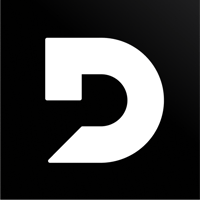Deepgram is the leading voice AI platform for developers building speech-to-text (STT), text-to-speech (TTS) and full speech-to-speech (STS) offerings. 200,000+ developers build with Deepgram’s voice-native foundational models – accessed through APIs or as self-managed software – due to our unmatched accuracy, latency and pricing. Customers include software companies building voice products, co-sell partners working with large enterprises, and enterprises solving internal voice AI use cases. The company ended 2024 cash-flow positive with 400+ enterprise customers, 3.3x annual usage growth across the past 4 years, over 50,000 years of audio processed and over 1 trillion words transcribed. There is no organization in the world that understands voice better than Deepgram
Deepgram is looking for an Applied Linguist to elevate the quality, authenticity, and usability of our multilingual speech AI products—including STT, TTS, and voice agents. You’ll go beyond language availability to ensure our global offerings are accurate, expressive, and culturally attuned. From conversational cues to regional norms, you’ll help shape how Deepgram understands and interacts with the world’s languages. This includes curating and analyzing linguistic data, designing culturally sensitive benchmarks, collaborating with native speakers and domain experts, and partnering cross-functionally with product, research, and engineering. If you’re passionate about linguistics, technology, and building truly global products, this is a high-impact role at the intersection of all three.
What You’ll DoDevelop and maintain linguistic datasets that power multilingual features (e.g., formatting, fillers, entity recognition, culturally-based formalities).
Design culturally and linguistically grounded benchmarking frameworks for our AI products and systems.
Analyze language-specific model behaviors and guide improvements based on linguistic diagnostics.
Coordinate with native speakers, localization experts, and contractors to ensure naturalness and cultural appropriateness.
Create and maintain annotation guidelines, pronunciation lexicons, and text normalization rules.
Work with Data Operations and Labeling teams to ensure multilingual labeling quality.
Partner with Research and Product to test new languages and features from a linguistic perspective.
Provide ongoing QA for multilingual models and contribute to internal documentation for model behavior.
Believe that great AI must understand everyone, everywhere.
Are energized by the challenge of making speech technology work well across many languages.
Take pride in linguistic detail and know how to scale language support with practical creativity.
Thrive on collaboration with engineers, researchers, and annotators alike.
Get joy from seeing your linguistic decisions reflected in live products used by global customers.
It’s Important To Us That You Have
A degree in Linguistics, Computational Linguistics, NLP, a related field, or proven experience working in these fields
Hands-on experience creating or curating language resources (e.g., corpora, lexicons, annotation guidelines) for applied use.
Working knowledge of multiple languages or a demonstrated ability to analyze unfamiliar linguistic systems quickly and effectively.
Practical experience writing, maintaining, and debugging tools for linguistic data analysis—using Python, regular expressions, and libraries like Pandas, spaCy, or NLTK.
Comfort using LLMs or other AI tools to prototype, extend, or refine linguistic workflows.
Experience with text normalization, transliteration, and standardization of mixed-language scenarios (e.g., Spanglish, code-switching) in real-world product applications.
A track record of contributing to or improving team-owned tools, workflows, or pipelines.
Strong written and verbal communication skills, especially when collaborating with cross-functional teams including engineers, researchers, and product managers.
It Would Be Great if You Had
Familiarity with AI speech systems, including the linguistic challenges of modeling phonetics, prosody, and disfluencies.
Experience designing or contributing to evaluation frameworks for speech or NLP models, especially across multiple languages.
A history of working with native speaker consultants, annotators, or localization partners to ensure cultural and linguistic accuracy.
A commitment to fairness, accessibility, and cultural nuance in building global AI products.
Backed by prominent investors including Y Combinator, Madrona, Tiger Global, Wing VC and NVIDIA, Deepgram has raised over $85 million in total funding. If you're looking to work on cutting-edge technology and make a significant impact in the AI industry, we'd love to hear from you!
Deepgram is an equal opportunity employer. We want all voices and perspectives represented in our workforce. We are a curious bunch focused on collaboration and doing the right thing. We put our customers first, grow together and move quickly. We do not discriminate on the basis of race, religion, color, national origin, gender, sexual orientation, gender identity or expression, age, marital status, veteran status, disability status, pregnancy, parental status, genetic information, political affiliation, or any other status protected by the laws or regulations in the locations where we operate.
We are happy to provide accommodations for applicants who need them.
#BI-Remote
Top Skills
Similar Jobs at Deepgram
What you need to know about the Charlotte Tech Scene
Key Facts About Charlotte Tech
- Number of Tech Workers: 90,859; 6.5% of overall workforce (2024 CompTIA survey)
- Major Tech Employers: Lowe’s, Bank of America, TIAA, Microsoft, Honeywell
- Key Industries: Fintech, artificial intelligence, cybersecurity, cloud computing, e-commerce
- Funding Landscape: $3.1 billion in venture capital funding in 2024 (CED)
- Notable Investors: Microsoft, Google, Falfurrias Management Partners, RevTech Labs Foundation
- Research Centers and Universities: University of North Carolina at Charlotte, Northeastern University, North Carolina Research Campus

